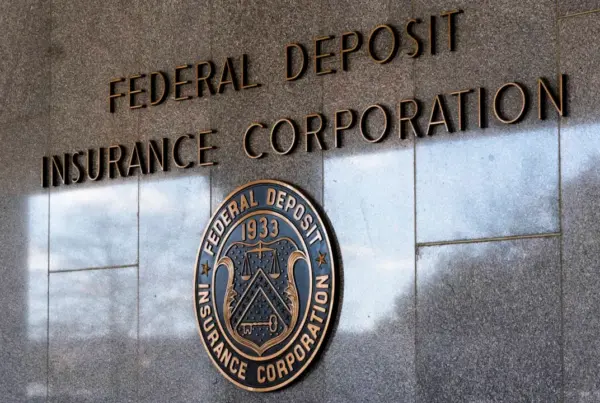“`html
FDIC’s Proposed Rule on Brokered Deposits: Key Insights for Financial Institutions
Introduction
On August 23, 2024, the Federal Deposit Insurance Corporation (FDIC) proposed a significant regulatory update regarding brokered deposits. This proposed rule aims to redefine the criteria for what constitutes a “deposit broker,” thereby impacting how banks and other financial institutions manage their deposit-taking activities.
Historically, the FDIC has enforced regulations under Section 29 of the Federal Deposit Insurance Act (FDIA) to mitigate risks associated with brokered deposits. The proposed changes reflect the evolving landscape of financial services, particularly the growing influence of technology and non-traditional banking entities. The primary concern addressed by this regulatory action is the need for enhanced clarity and oversight of entities that facilitate deposit placements, ensuring the stability and integrity of the banking system.
Key Regulatory Changes & Analysis
1. Expansion of the Definition of Deposit Broker
The proposed rule significantly broadens the definition of a deposit broker.
- Previous Definition: Under existing regulations, a deposit broker was defined narrowly as an entity that places deposits on behalf of others.
- New Definition: The proposed rule expands this definition to include a wider range of intermediaries, such as fintech companies and other service providers that connect consumers with deposit accounts.
This change is crucial as it may subject a larger number of entities to regulatory oversight, thereby increasing compliance obligations.
2. Enhanced Reporting Requirements
The FDIC’s proposal introduces new reporting requirements for institutions engaging with deposit brokers.
- Key Changes: Financial institutions will be required to maintain detailed records of transactions involving deposit brokers and report these activities to the FDIC.
- Impact: This increase in reporting obligations may lead to higher compliance costs and necessitate operational adjustments for banks and financial institutions utilizing brokered deposits.
3. Clarification of Exceptions
The proposed rule clarifies certain exceptions to the definition of deposit brokers.
- Previous Exceptions: Prior regulations provided limited clarity regarding exceptions for specific entities.
- New Framework: The proposed rule outlines explicit criteria under which certain entities may qualify for exemptions from being classified as deposit brokers, potentially alleviating some compliance burdens.
Legal and Industry Implications
The proposed regulatory changes present several implications for affected parties:
- Compliance Burdens: Financial institutions may face increased operational costs and complexities in adhering to the expanded definitions and reporting requirements.
- Regulatory Risks: Non-compliance could lead to enforcement actions, as the FDIC has historically maintained strict oversight of brokered deposit activities.
- Litigation Considerations: Institutions may encounter legal challenges related to the interpretation and application of the new definitions and obligations.
To mitigate these risks, law firms and financial institutions should conduct thorough assessments of their current practices and prepare for potential regulatory scrutiny.
Recommended Actions & Compliance Strategies
Affected financial institutions should consider the following actions:
- Conduct a Compliance Review: Evaluate existing practices regarding brokered deposits to identify areas of potential non-compliance with the proposed rule.
- Update Internal Policies: Revise operational and compliance policies to align with the new definitions and reporting requirements.
- Engage with Legal Counsel: Consult legal experts to navigate the complexities of the proposed rule and ensure adherence to regulatory obligations.
- Participate in Public Comments: Institutions are encouraged to submit comments during the public comment period to express concerns or support regarding the proposed changes.
Key Deadlines
- Comment Period: The FDIC has established a public comment period, which is crucial for stakeholders to provide feedback on the proposed rule.
Conclusion & Next Steps
In conclusion, the FDIC’s proposed rule on brokered deposits represents a significant shift in regulatory oversight, with far-reaching implications for financial institutions. Stakeholders must remain vigilant and proactive in adapting to these changes.
The timeline for final implementation of the rule remains uncertain, and further regulatory developments may arise as the FDIC reviews public comments. Institutions should stay informed about ongoing discussions and potential legislative actions that could influence the enforcement of this rule.
By taking proactive measures, financial institutions can better navigate the evolving regulatory landscape surrounding brokered deposits, ensuring compliance and stability in their operations.
“`


